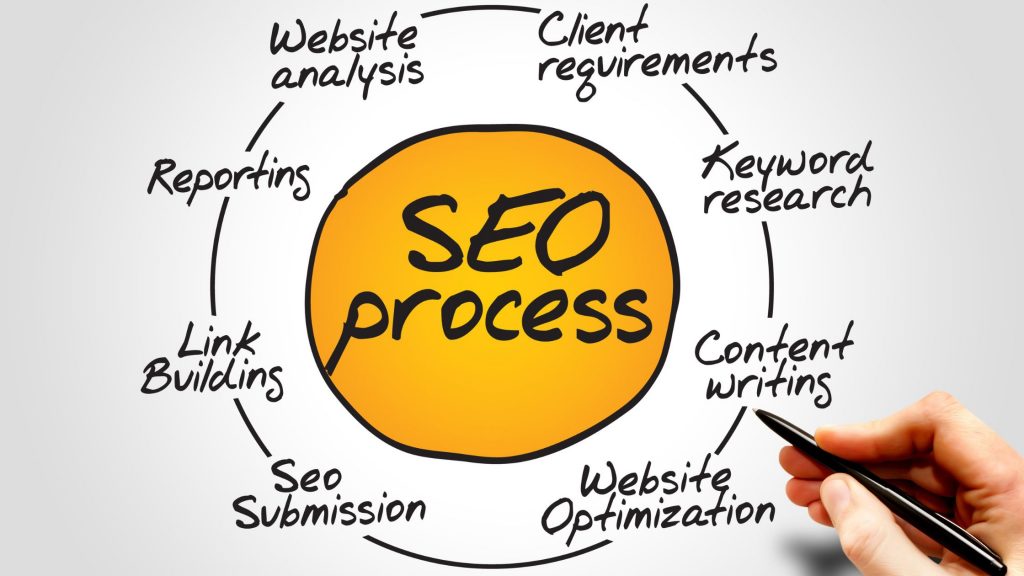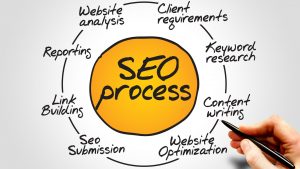Search engine optimisation. Do a search about the most effective digital marketing tools for small businesses, and SEO will inevitably be one of the prevalent results. The reason for this is simple: optimising your content for the search engines – aka Google – can result in game-changing organic traffic for your company.
However, there’s a problem: SEO is complicated.
It incorporates a wide assortment of moving parts. If one of these parts is missing or isn’t functioning alongside the others, your carefully constructed SEO campaign can fail to hit the heights – and this means not landing on the all-important first page of Google search results.
If you’re not quite sure where to start, don’t worry. This quick starter guide is here to help. Below we detail the SEO elements all small businesses should cover for organic search success.
SEO – The basics
Simply put, your SEO campaign will flop without the right foundation. Fortunately, not much is required when it comes to getting the basics in place. These basics include:
- Website: Self-explanatory. The entire point of SEO is to promote your website and its content, so you won’t get far without one!
- Traffic: Your site should already be attracting some traffic, although this doesn’t necessarily have to be from search engines.
- Google Analytics: Google Analytics, along with other platforms such as Bing Webmaster Tools and Search Console, provides you with valuable information about the performance of your content. This is required to make more informed decisions about what content to create in the future.
- Google My Business: Are you a local business? If so, Google My Business is a must. This helps enhance visibility for your business via relevant local search terms.
- Google indexing: For your website to be found on Google, you first have to ensure it is indexed. This means the search engine kingpin is aware of your site, giving your content the potential to show up for relevant search queries.
Website structure
You may have a website, but that doesn’t necessarily mean it is structured correctly. What does that imply exactly? Well, Google likes sites “with a logical link structure”. They want your site to be easy to navigate – not just for your users but also for their web crawlers.
For instance, your homepage should point directly to other important pages like “Services”, “About”, “Contact Us”, etc. Then with pages like “Services”, they should link to individual pages for each service type.
So far so easy, right?
However, there is more to having a sound SEO-friendly website structure. You also need to keep it free from broken links and pages. Furthermore, it’s essential you place emphasis on creating a descriptive, unique meta description and title for each page.
Keyword research
You need to know what your audience is searching for when they head to Google. This is where keyword research comes into play. By analysing keyword volume and current search trends, you can start to formulate a clear picture as to what content is being searched for by potential customers.
You can then begin to incorporate these keywords into your content.
If you’re a newcomer to the world of SEO – a likely scenario if you’re reading this guide – it’s recommended to target long-tail keywords. Even in small niches, the most prevalent short keywords are going to be ultra-competitive. Trying to compete with those who have years of SEO experience over you is going to be tough in the short term. With long-tail keywords, which are more specific and longer, you can target less competitive – but still valuable – search terms.
Putting together high-quality content
High-quality content is a must to push your pages up the search rankings. Visitors love high–quality copy. Google loves it, too, because it lowers the bounce rate and keeps visitors engaged. It also serves as evidence your content is what people want to consume. The result: Google places trust in your brand and promotes it accordingly, which means pushing it up their search rankings.
However, there’s some work to be done before your content can be considered high-quality. Here are some pointers to keep in mind:
- Long-form content works: Longer content can be populated with more keywords and keep people on your page longer.
- Avoid pronounced keyword placement: Keywords need to be implemented seamlessly. They should never stick out like a sore thumb.
- Grammar and spelling are on point: A professional appearance is necessary with your content pages. Both your readers and Google won’t appreciate it if your content is littered with spelling and grammar mistakes.
- Use appropriate headings: The right heading tags (H1, H2, H3, etc.) give each page a hierarchical structure.
- Don’t just focus on written content: It will tend to take up the bulk of your content, and it’s the easiest to produce, but you shouldn’t only focus on written content. Videos and images help to support your content, making it more scannable and engaging.
Backlink building
Backlinks are an integral component of any SEO campaign. These backlinks are an off-page SEO factor in that they don’t appear on your website – but they do point back to your site. Each link is viewed as a “vote of confidence”. The more backlinks you have, the more positively your site is viewed by search engines.
At least in theory.
Low-quality backlinks are not going to help your cause. In fact, if these are viewed as spammy links, prepare to feel the wrath of Google. To avoid being penalised and boost your backlink profile at the same time, make sure you only try to collect links from high-authority websites.
Final thoughts
A successful SEO campaign is not easy. As the above information details, there’s a lot you need to factor into your plans – and this guide is only the start. While it’s possible for your business to go it alone and succeed with SEO, there are many reasons – including lack of time, resources, and expertise – why organisations decide to receive external help from a marketing agency.
If you’re in a similar boat, our bespoke full-service SEO services can align with your marketing efforts and skyrocket your website to the top of the search rankings.




